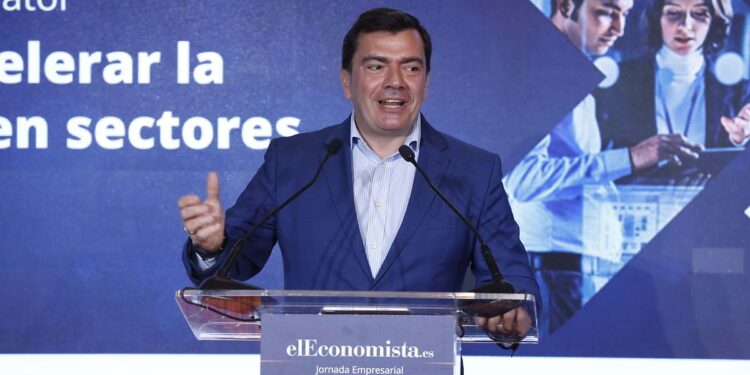“According to the International Monetary Fund, it will be necessary to invest 4.7 trillion euros to achieve global decarbonization goals,” stated Agustín Escobar, President and CEO of Siemens Spain and CEO of Siemens Mobility Southwet Europe, during the presentation of the Siemens Xcelerator report. Escobar was responsible for delivering the opening speech at the event organized by elEconomista.es focused on the digitization of strategic sectors.
The report presented by the German company has emphasized the urgent need to mobilize significant investments to meet global decarbonization goals. This is under a context of urgency, whose consequences are already noticeable. “Last year was the warmest in history,” Escobar pointed out. In this sense, Spain and Europe are facing a race against time to address these challenges. The good news, according to the executive, is that “there are great financing opportunities available through Next Generation funds and the use of technological tools, as well as a great talent.”
For the CEO, the country must be reindustrialized, have greater autonomy, and consolidate sustainability as the cornerstone of the economy, especially because “the rise in raw material costs has reduced company margins.” He also adds that “the industry has suffered, with its percentage in GDP and employment rate at historical lows,” although this not only affects Spain, but also other countries considered industrial leaders such as Germany, which is currently experiencing a temporary weakness. This country continues to be a “role model,” because, despite everything, the industry still accounts for 26.6% of GDP and its investment in R&D is over 3%. “In Spain, we are below half,” Escobar concludes on this matter.
“Productivity in Spain has fallen by 3.7%, while in Germany and the United States it grew by 11.8% and 15%, respectively,” Siemens points out. It is important to encourage new technologies, invest in sustainability, and give more importance to talent to continue in the global race, especially because “Spain has strengths.” An example of this is that Spain is the seventh country in foreign investment and the figure of foreign investments has doubled in the last decade, “going from 15,000 to 30,000 million euros”.
SMEs: more difficulties in implementing digital changes
One of the key points highlighted in this Siemens Xcelerator report is precisely the importance that new technologies such as the metaverse, big data, or artificial intelligence play in the competitiveness and resilience of the Spanish economy. In terms of figures, Escobar is clear: “The new technologies market will exceed 100 billion dollars in 2026 with an expected annual growth of 35% until then.” To achieve this goal, it is necessary to emphasize aspects such as digitization or reducing bureaucracy, as well as the need for fiscal reforms and moving towards sustainability. Siemens stresses the need for “a state pact on education and technological development.”
However, this same report highlights the need to drive these changes in SMEs, “the productive fabric in Spain (99%) contributing 65% of GDP and 60% of business employment”. Precisely, small and medium-sized enterprises are the ones taking the longest to implement digital changes. In this regard, “79% of multinationals have implemented a smart operation strategy, compared to 50% of SMEs.” Another point the report makes is that “SMEs prioritize security, scalability, and interoperability,” Escobar explains.
In this landscape, Siemens stands out as an example of a company committed to these principles, highlighting its investments in sustainable technologies and leadership in key sectors that contribute to technological and industrial sovereignty and reindustrialization. Proof of this is the new headquarters in Madrid that the company is building with an investment of 160 million euros or the launch of initiatives like Siemens Xcelerator to promote technological innovation.
Thanks to its sustainable purpose, “the company managed to reduce 190 million tons of CO2 emissions in customers who applied our technologies, in addition to halving CO2 emissions in scope 1 and 2 or ensuring that 70% of the energy we consume is green, although in Spain it is 100%,” the executive emphasized. “We have a clear commitment: to be Net Zero by 2030,” he concluded.


